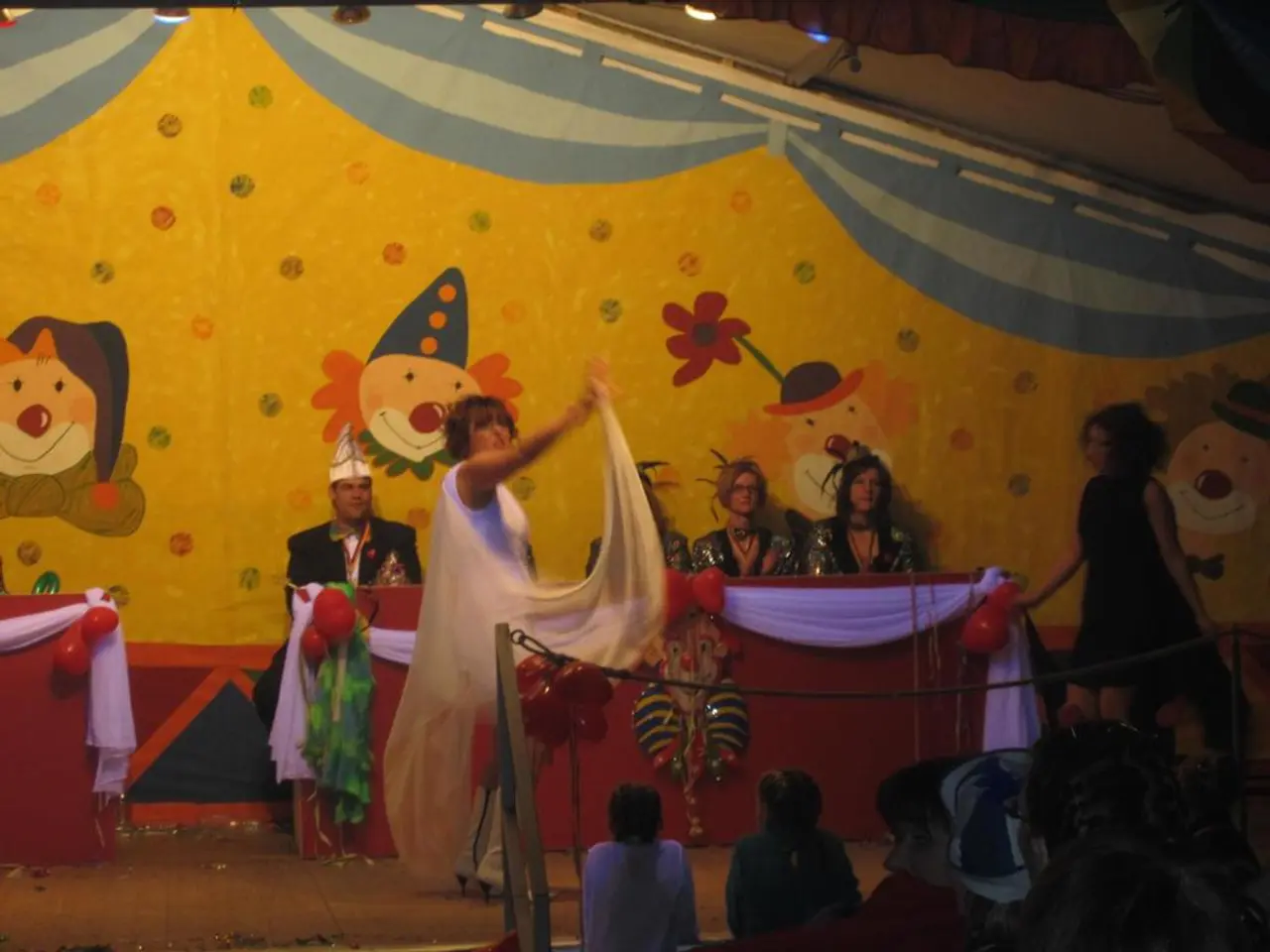Behind-the-Scenes Look at Reality TV Competition Participation
Reality television, a genre that has captivated audiences for decades, has become a staple in modern-day broadcasting. From talent shows to game play, relationships, and celebrity-focused programmes, the genre offers a diverse range of entertainment.
The roots of this popular format can be traced back to 1948 with the TV series "Candid Camera". Fast forward to the 1990s, MTV debuted "The Real World" in 1992, paving the way for the debut of contestant-reality shows like "Survivor" and "Big Brother" in 2000. This period also marked a significant milestone as reality programming broke into Nielsen's top 10 prime-time broadcast TV shows for the first time. In 2010-11, reality shows captured an impressive 56 percent of the audience watching top 10 shows.
However, the allure of reality television isn't without its controversies. Some contestants have come forward to discuss the manipulation they experienced during their time on the shows. For instance, a past contestant on "The Voice" revealed on Reddit that her auditions, recording sessions, and interviews were all recorded well before the show, making the "blind audition" not as blind as it seemed. Contestants on shows like "Hell's Kitchen" and "The Bachelor" often log fewer than five hours of sleep per night during the show's shooting, adding to the stress and pressure.
Episodes of reality shows are often creatively edited to tell the story the producers want to tell. This creative editing can sometimes lead to the portrayal of contestants in ways they may not have intended or consented to. Reality show contracts typically include language stating that the contestant cannot sue, it's not the production company's fault if the contestant gets injured, the contestant may be subject to an invasion of privacy, and the show may portray the contestant in any manner desired.
Despite these challenges, many contestants are able to parlay their 15 minutes of fame into something more. Some have become motivational speakers, opened restaurants, or furthered their singing or fashion careers. However, some former contestants have experienced anxiety and depression after the show due to the roller coaster of fame and notoriety.
Contestants on reality shows are often incommunicado with family and friends to up the stress level. To make a favorable impression when applying for a reality show, one should pay attention to the video quality, plan what to say, be oneself with a unique personality, start the video strongly, and stick to the time limit. At live auditions, one should dress in something memorable but not nutty, admit any nervousness, not hide perceived flaws, not lie, beware the waiting room, and be prepared to wait a long time.
If a contestant gets eliminated from an elimination-type show, they are typically sent to a vacation spot to wait out the show's conclusion. Reality shows like "The Bachelor" provide lots of liquor to amp the drama. Contestants may also be required to participate in physically or mentally grueling challenges, or challenges that are just plain gross, such as bug-eating challenges.
In 2014, scripted shows began to retake the top 10, though some reality shows are still featured. Regardless, the genre continues to hold a strong presence in television, offering a unique blend of entertainment, drama, and a glimpse into the lives of ordinary people.
Despite the controversies, reality television remains a popular form of entertainment, offering a unique blend of entertainment, drama, and a glimpse into the lives of ordinary people. As always, it is essential to approach the genre with a critical eye and a healthy dose of scepticism.








